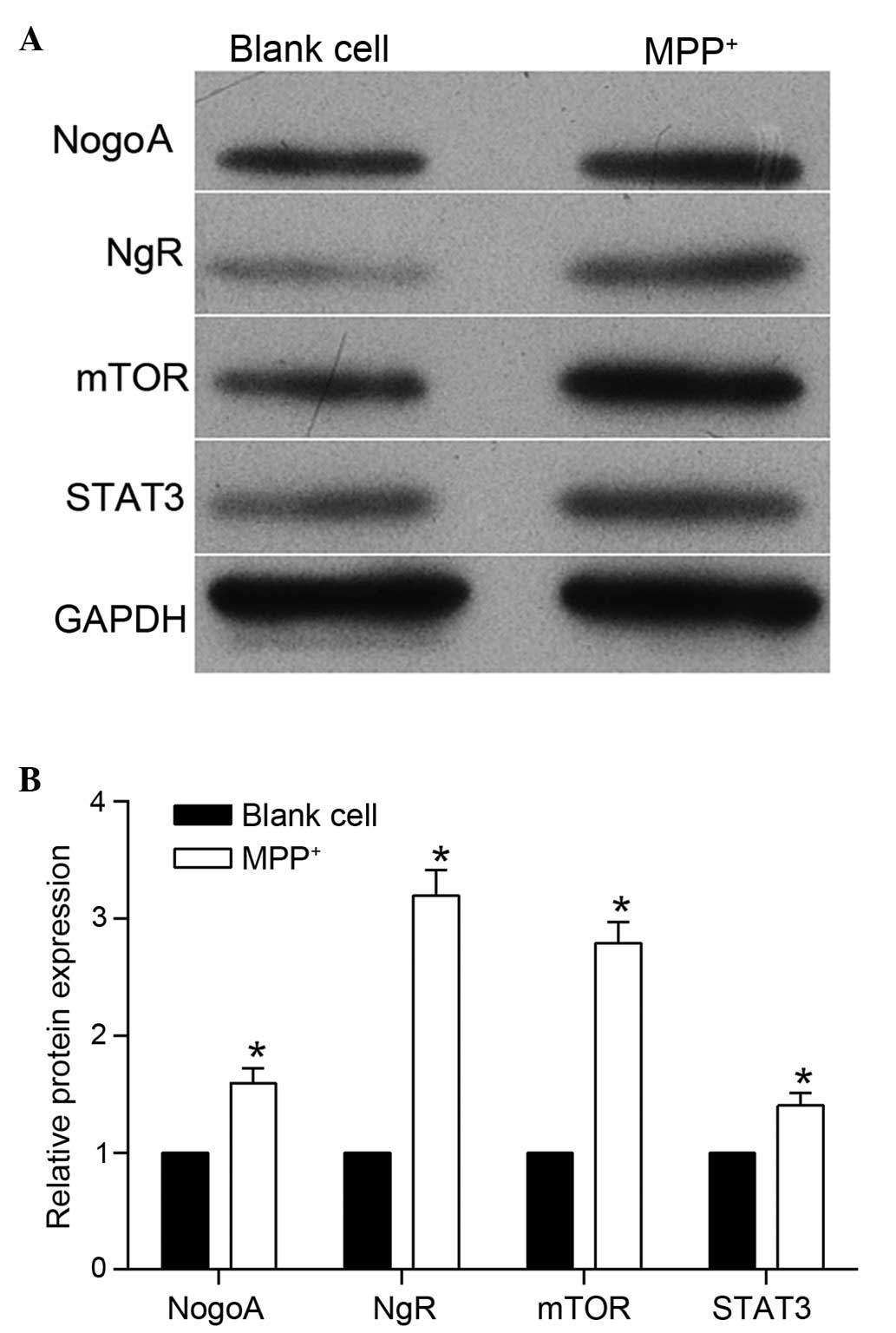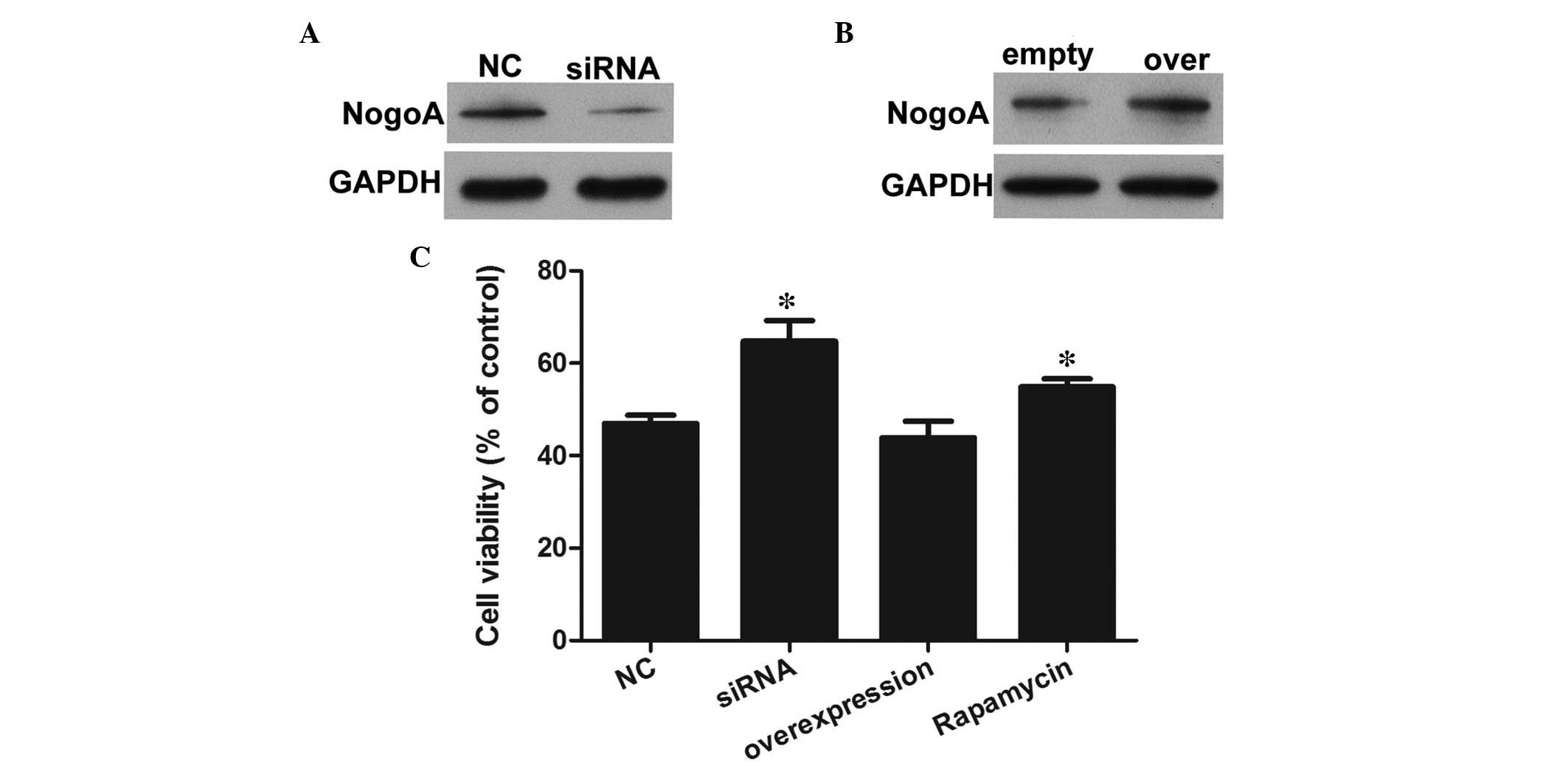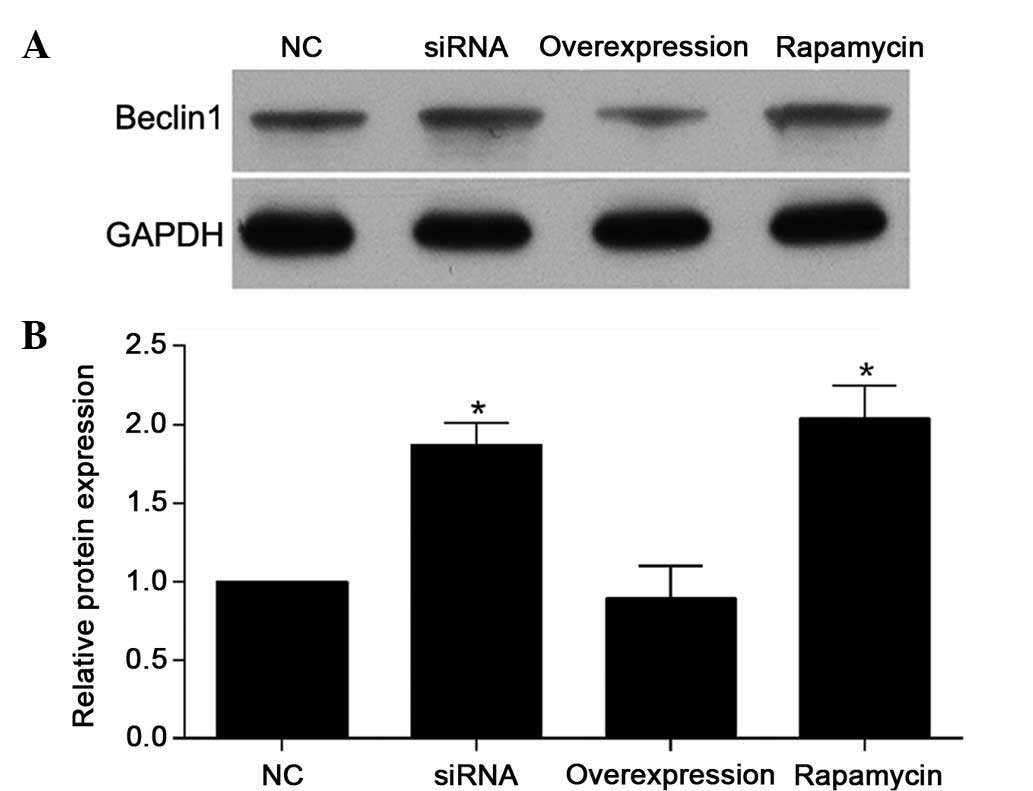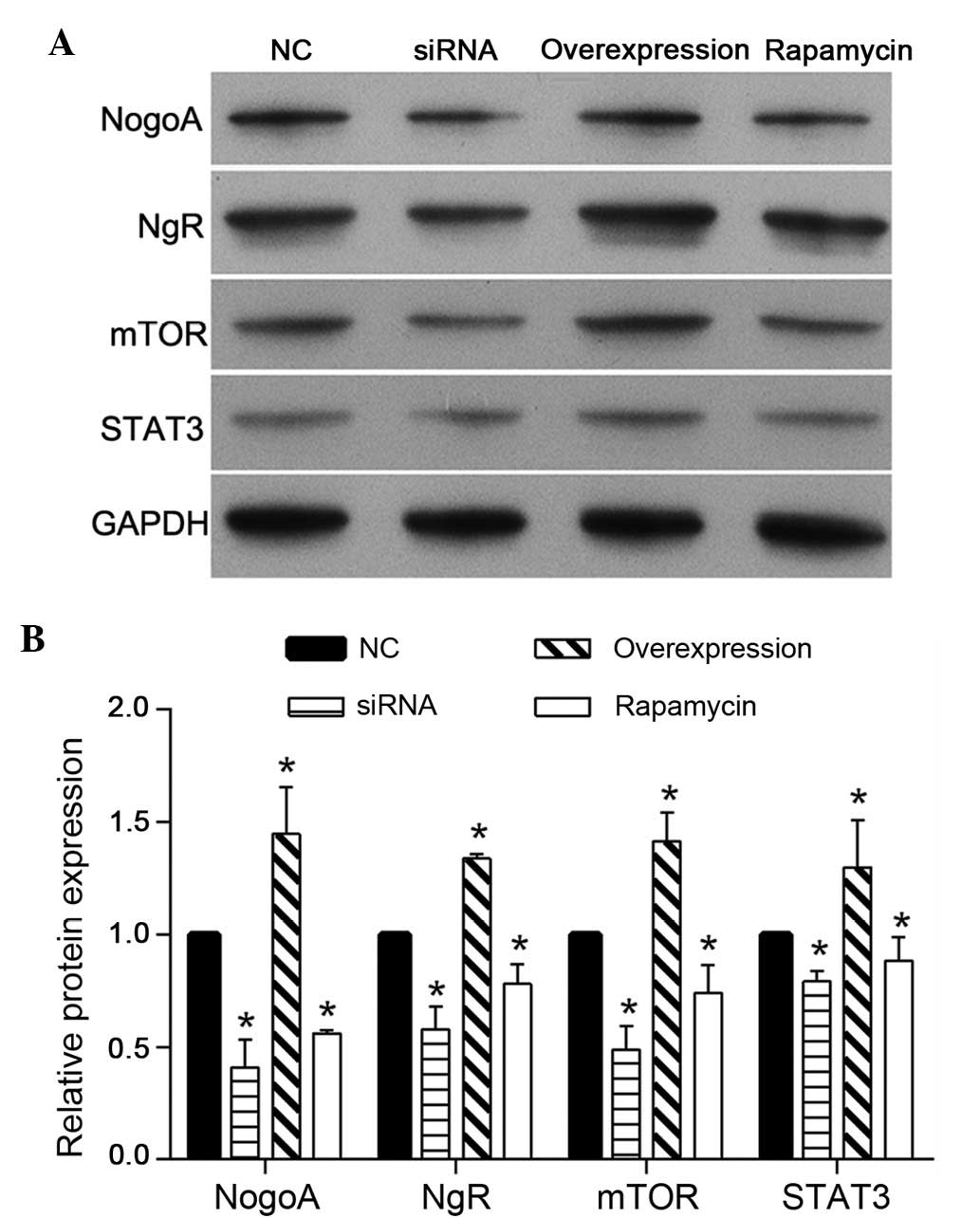|
1
|
de Lau LM, Koudstaal PJ, Hofman A and
Breteler MM: Subjective complaints precede Parkinson disease: The
rotterdam study. Arch Neurol. 63:362–365. 2006. View Article : Google Scholar : PubMed/NCBI
|
|
2
|
Schapira AH and Olanow CW: Neuroprotection
in Parkinson disease: Mysteries, myths, and misconceptions. JAMA.
291:358–364. 2004. View Article : Google Scholar : PubMed/NCBI
|
|
3
|
Hirsch E, Graybiel AM and Agid YA:
Melanized dopaminergic neurons are differentially susceptible to
degeneration in Parkinson's disease. Nature. 334:345–348. 1988.
View Article : Google Scholar : PubMed/NCBI
|
|
4
|
Jellinger KA: The pathology of Parkinson's
disease. Adv Neurol. 86:55–72. 2001.PubMed/NCBI
|
|
5
|
Braak H, Del Tredici K, Rüb U, de Vos RA,
Jansen Steur EN and Braak E: Staging of brain pathology related to
sporadic Parkinson's disease. Neurobiol Aging. 24:197–211. 2003.
View Article : Google Scholar
|
|
6
|
Fahn S and Sulzer D: Neurodegeneration and
neuroprotection in Parkinson disease. NeuroRx. 1:139–154. 2004.
View Article : Google Scholar
|
|
7
|
Braak H, Ghebremedhin E, Rüb U, Bratzke H
and Del Tredici K: Stages in the development of Parkinson's
disease-related pathology. Cell Tissue Res. 318:121–134. 2004.
View Article : Google Scholar : PubMed/NCBI
|
|
8
|
Chaudhuri KR and Odin P: The challenge of
non-motor symptoms in Parkinson's disease. Prog Brain Res.
184:325–341. 2010. View Article : Google Scholar : PubMed/NCBI
|
|
9
|
Hou RR, Chen JZ, Chen H, Kang XG, Li MG
and Wang BR: Neuroprotective effects of
(−)-epigallocatechin-3-gallate (EGCG) on paraquat-induced apoptosis
in PC12 cells. Cell Biol Int. 32:22–30. 2008. View Article : Google Scholar
|
|
10
|
Schwab ME: Functions of Nogo proteins and
their receptors in the nervous system. Nat Rev Neurosci.
11:799–811. 2010. View
Article : Google Scholar : PubMed/NCBI
|
|
11
|
Zagrebelsky M, Schweigreiter R, Bandtlow
CE, Schwab ME and Korte M: Nogo-A stabilizes the architecture of
hippocampal neurons. J Neurosci. 30:13220–13234. 2010. View Article : Google Scholar : PubMed/NCBI
|
|
12
|
Kempf A and Schwab ME: Nogo-A represses
anatomical and synaptic plasticity in the central nervous system.
Physiology (Bethesda). 28:151–163. 2013. View Article : Google Scholar
|
|
13
|
Mironova YA and Giger RJ: Where no
synapses go: Gatekeepers of circuit remodeling and synaptic
strength. Trends Neurosci. 36:363–373. 2013. View Article : Google Scholar : PubMed/NCBI
|
|
14
|
Jitoku D, Hattori E, Iwayama Y, Yamada K,
Toyota T, Kikuchi M, Maekawa M, Nishikawa T and Yoshikawa T:
Association study of Nogo-related genes with schizophrenia in a
Japanese case-control sample. Am J Med Genet B Neuropsychiatr
Genet. 156B:581–592. 2011. View Article : Google Scholar : PubMed/NCBI
|
|
15
|
Krištofiková Z, Vrajová M, Sirová J, Valeš
K, Petrásek T, Schönig K, Tews B, Schwab M, Bartsch D, Stuchlík A
and Rípová D: N-Methyl-d-Aspartate receptor - Nitric oxide synthase
pathway in the cortex of Nogo-A-Deficient rats in relation to brain
laterality and schizophrenia. Front Behav Neurosci. 7:902013.
View Article : Google Scholar
|
|
16
|
Delekate A, Zagrebelsky M, Kramer S,
Schwab ME and Korte M: NogoA restricts synaptic plasticity in the
adult hippocampus on a fast time scale. Proc Natl Acad Sci USA.
108:2569–2574. 2011. View Article : Google Scholar : PubMed/NCBI
|
|
17
|
Zemmar A, Weinmann O, Kellner Y, Yu X,
Vicente R, Gullo M, Kasper H, Lussi K, Ristic Z, Luft AR, et al:
Neutralization of Nogo-A enhances synaptic plasticity in the rodent
motor cortex and improves motor learning in vivo. J Neurosci.
34:8685–8698. 2014. View Article : Google Scholar : PubMed/NCBI
|
|
18
|
Wälchli T, Pernet V, Weinmann O, Shiu JY,
Guzik-Kornacka A, Decrey G, Yüksel D, Schneider H, Vogel J, Ingber
DE, et al: Nogo-A is a negative regulator of CNS angiogenesis. Proc
Natl Acad Sci USA. 110:E1943–E1952. 2013. View Article : Google Scholar : PubMed/NCBI
|
|
19
|
Willi R, Weinmann O, Winter C, Klein J,
Sohr R, Schnell L, Yee BK, Feldon J and Schwab ME: Constitutive
genetic deletion of the growth regulator Nogo-A induces
schizophrenia-related endophenotypes. J Neurosci. 30:556–567. 2010.
View Article : Google Scholar : PubMed/NCBI
|
|
20
|
Tews B, Schönig K, Arzt ME, Clementi S,
Rioult-Pedotti MS, Zemmar A, Berger SM, Schneider M, Enkel T,
Weinmann O, et al: Synthetic microRNA-mediated downregulation of
Nogo-A in transgenic rats reveals its role as regulator of synaptic
plasticity and cognitive function. Proc Natl Acad Sci USA.
110:6583–6588. 2013. View Article : Google Scholar : PubMed/NCBI
|
|
21
|
GrandPré T, Li S and Strittmatter SM:
Nogo-66 receptor antagonist peptide promotes axonal regeneration.
Nature. 417:547–551. 2002. View
Article : Google Scholar : PubMed/NCBI
|
|
22
|
Wang H, Shen J, Xiong N, Zhao H and Chen
Y: Protein kinase B is involved in Nogo-66 inhibiting neurite
outgrowth in PC12 cells. Neuroreport. 22:733–738. 2011. View Article : Google Scholar : PubMed/NCBI
|
|
23
|
Yan J, Zhou X, Guo JJ, Mao L, Wang YJ, Sun
J, Sun LX, Zhang LY, Zhou XF and Liao H: Nogo-66 inhibits adhesion
and migration of microglia via GTPase Rho pathway in vitro. J
Neurochem. 120:721–731. 2012. View Article : Google Scholar
|
|
24
|
Cossarizza A, Baccarani-Contri M,
Kalashnikova G and Franceschi C: A new method for the
cytofluorimetric analysis of mitochondrial membrane potential using
the J-aggregate forming lipophilic cation
5,5′,6,6′-tetrachloro-1,1′,3,3′-tetraethyl-benzimidazolcarbocyanine
iodide (JC-1). Biochem Biophys Res Commun. 197:40–45. 1993.
View Article : Google Scholar : PubMed/NCBI
|
|
25
|
Akbik F, Cafferty WB and Strittmatter SM:
Myelin associated inhibitors: A link between injury-induced and
experience-dependent plasticity. Exp Neurol. 235:43–52. 2012.
View Article : Google Scholar
|
|
26
|
Pernet V and Schwab ME: The role of Nogo-A
in axonal plasticity, regrowth and repair. Cell Tissue Res.
349:97–104. 2012. View Article : Google Scholar : PubMed/NCBI
|
|
27
|
Rolando C, Parolisi R, Boda E, Schwab ME,
Rossi F and Buffo A: Distinct roles of Nogo-a and Nogo receptor 1
in the homeostatic regulation of adult neural stem cell function
and neuroblast migration. J Neurosci. 32:17788–17799. 2012.
View Article : Google Scholar : PubMed/NCBI
|
|
28
|
Willi R and Schwab ME: Nogo and Nogo
receptor: Relevance to schizophrenia? Neurobiol Dis. 54:150–157.
2013. View Article : Google Scholar : PubMed/NCBI
|
|
29
|
Deng Q and Yang X: Protective effects of
Gynostemma pentaphyllum polysaccharides on PC12 cells impaired by
MPP(+). Int J Biol Macromol. 69:171–175. 2014. View Article : Google Scholar : PubMed/NCBI
|
|
30
|
Cheng B, Guo Y, Li C, Ji B, Pan Y, Chen J
and Bai B: Edaravone protected PC12 cells against MPP(+)-cytoxicity
via inhibiting oxidative stress and up-regulating heme oxygenase-1
expression. J Neurol Sci. 343:115–119. 2014. View Article : Google Scholar : PubMed/NCBI
|
|
31
|
Swiech L, Perycz M, Malik A and Jaworski
J: Role of mTOR in physiology and pathology of the nervous system.
Biochim Biophys Acta. 1784:116–132. 2008. View Article : Google Scholar
|
|
32
|
Jiang LB, Cao L, Yin XF, Yasen M, Yishake
M, Dong J and Li XL: Activation of autophagy via Ca(2+)
dependent AMPK/mTOR pathway in rat notochordal cells is a cellular
adaptation under hyperosmotic stress. Cell Cycle. 14:867–879. 2015.
View Article : Google Scholar
|
|
33
|
Kumar S, Guru SK, Pathania AS, Manda S,
Kumar A, Bharate SB, Vishwakarma RA, Malik F and Bhushan S:
Fascaplysin induces caspase mediated crosstalk between apoptosis
and autophagy through the inhibition of PI3K/AKT/mTOR signaling
cascade in human leukemia HL-60 cells. J Cell Biochem. 116:985–997.
2015. View Article : Google Scholar : PubMed/NCBI
|
|
34
|
Mukhopadhyay S, Panda PK, Sinha N, Das DN
and Bhutia SK: Autophagy and apoptosis: Where do they meet?
Apoptosis. 19:555–566. 2014. View Article : Google Scholar : PubMed/NCBI
|


















